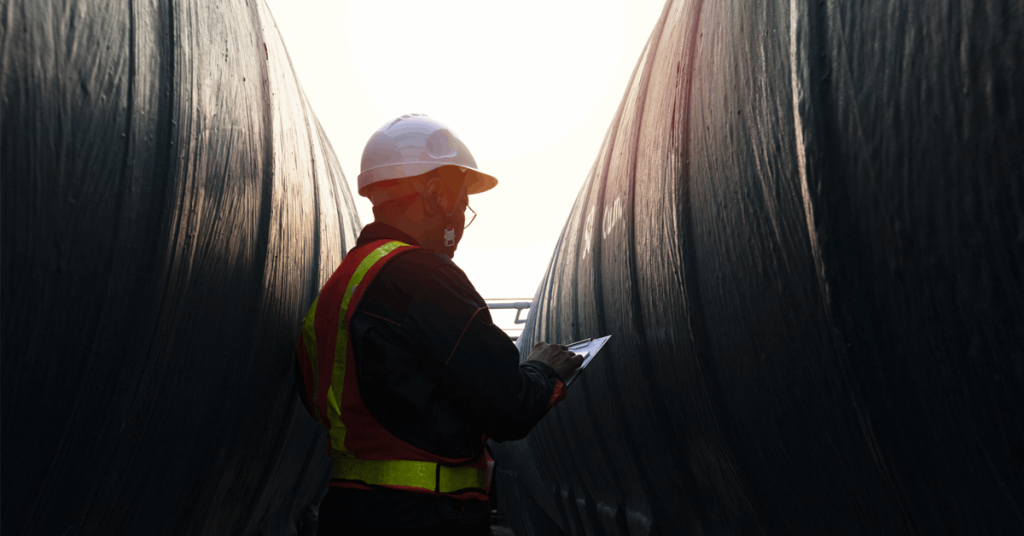Baker Hughes said it was awarded a contract by Genesis Energy to provide drag-reducing agents (DRAs) for two critical offshore oil pipelines serving the U.S. Gulf Coast.
The multi-year agreement includes chemicals, associated management services, and the deployment of Baker Hughes’ Leucipa automated field production solution to optimize operations, the company said in a news release.
Under the agreement, Baker Hughes will provide DRAs from its FLO product line to support the transportation of both light and heavy crude from offshore platforms to storage and refining facilities in Texas and Louisiana.
Financial terms of the contract were not disclosed.
The use of DRAs and midstream solutions will significantly increase the capacity of the Cameron Highway Oil Pipeline and Poseidon systems, each of which is operated and 64 percent owned by Genesis Energy, allowing for increased oil production and enhanced crude slate flexibility in the Gulf, Baker Hughes said.
“As America’s energy demand continues to grow, it is crucial that midstream capacity keep up with production to avoid bottlenecks,” Amerino Gatti, executive vice president of oilfield services and equipment at Baker Hughes, said. “Fortunately, technology provides the solution to this challenge. By utilizing DRAs to reduce friction between pipelines and the hydrocarbon resources that flow through them, as well as AI to optimize their operation, Genesis can increase its capacity without the need for large investments of time and capital, all while helping the country meet its energy needs”.
Strategic Partnership with Petronas
Earlier in the month, Baker Hughes said it entered into a memorandum of understanding (MoU) with Petroliam Nasional Berhad (Petronas) on a strategic partnership to explore business initiatives aimed at supporting the delivery of Asia’s energy expansion and transition.
The MoU “serves as a foundation for collaboration initiatives between the two companies to enhance local supply chain capabilities and explore the feasibility of implementing a variety of technology solutions,” Baker Hughes said in a separate statement.
The potential initiatives include enhanced liquefied natural gas (LNG) services footprint and cross-border talent training and development programs to strengthen local field operations capabilities; exploration and production, chemicals and mature assets solutions; and digital solutions such as artificial intelligence.
The two companies also plan to explore sustainable energy solutions including carbon capture, utilization and storage (CCUS), as well as lubricants and biofuels for the turbomachinery supply chain, according to the statement.
Baker Hughes said it plans to expand on its existing services footprint in Malaysia to develop a full aeroderivative gas turbine module repair services facility, inclusive of disassembly, assembly, grinding and testing capabilities. The company is currently assessing options to identify the best location for placing its new expanded aeroderivative gas turbine services footprint in the country.
With an installed base of over 600 gas turbines and continued expected growth given the energy expansion, the augmented services capabilities will provide enhanced service to customers across the region, the company said.
“It is critically important to grow alongside our customers in Asia-Pacific, including Petronas, as we work toward our shared goal of sustainable energy development to provide for a world that needs more reliable, secure and lower-carbon energy,” Baker Hughes Chairman and CEO Lorenzo Simonelli said. “We look forward to working alongside PETRONAS, as well as other local partners, to realize this additional localization effort to help ensure energy is available today and in the future”.
To contact the author, email rocky.teodoro@rigzone.com
Generated by readers, the comments included herein do not reflect the views and opinions of Rigzone. All comments are subject to editorial review. Off-topic, inappropriate or insulting comments will be removed.
element
var scriptTag = document.createElement(‘script’);
scriptTag.src = url;
scriptTag.async = true;
scriptTag.onload = implementationCode;
scriptTag.onreadystatechange = implementationCode;
location.appendChild(scriptTag);
};
var div = document.getElementById(‘rigzonelogo’);
div.innerHTML += ” +
‘‘ +
”;
var initJobSearch = function () {
//console.log(“call back”);
}
var addMetaPixel = function () {
if (-1 > -1 || -1 > -1) {
/*Meta Pixel Code*/
!function(f,b,e,v,n,t,s)
{if(f.fbq)return;n=f.fbq=function(){n.callMethod?
n.callMethod.apply(n,arguments):n.queue.push(arguments)};
if(!f._fbq)f._fbq=n;n.push=n;n.loaded=!0;n.version=’2.0′;
n.queue=[];t=b.createElement(e);t.async=!0;
t.src=v;s=b.getElementsByTagName(e)[0];
s.parentNode.insertBefore(t,s)}(window, document,’script’,
‘https://connect.facebook.net/en_US/fbevents.js’);
fbq(‘init’, ‘1517407191885185’);
fbq(‘track’, ‘PageView’);
/*End Meta Pixel Code*/
} else if (0 > -1 && 99 > -1)
{
/*Meta Pixel Code*/
!function(f,b,e,v,n,t,s)
{if(f.fbq)return;n=f.fbq=function(){n.callMethod?
n.callMethod.apply(n,arguments):n.queue.push(arguments)};
if(!f._fbq)f._fbq=n;n.push=n;n.loaded=!0;n.version=’2.0′;
n.queue=[];t=b.createElement(e);t.async=!0;
t.src=v;s=b.getElementsByTagName(e)[0];
s.parentNode.insertBefore(t,s)}(window, document,’script’,
‘https://connect.facebook.net/en_US/fbevents.js’);
fbq(‘init’, ‘1517407191885185’);
fbq(‘track’, ‘PageView’);
/*End Meta Pixel Code*/
}
}
// function gtmFunctionForLayout()
// {
//loadJS(“https://www.googletagmanager.com/gtag/js?id=G-K6ZDLWV6VX”, initJobSearch, document.body);
//}
// window.onload = (e => {
// setTimeout(
// function () {
// document.addEventListener(“DOMContentLoaded”, function () {
// // Select all anchor elements with class ‘ui-tabs-anchor’
// const anchors = document.querySelectorAll(‘a .ui-tabs-anchor’);
// // Loop through each anchor and remove the role attribute if it is set to “presentation”
// anchors.forEach(anchor => {
// if (anchor.getAttribute(‘role’) === ‘presentation’) {
// anchor.removeAttribute(‘role’);
// }
// });
// });
// }
// , 200);
//});

